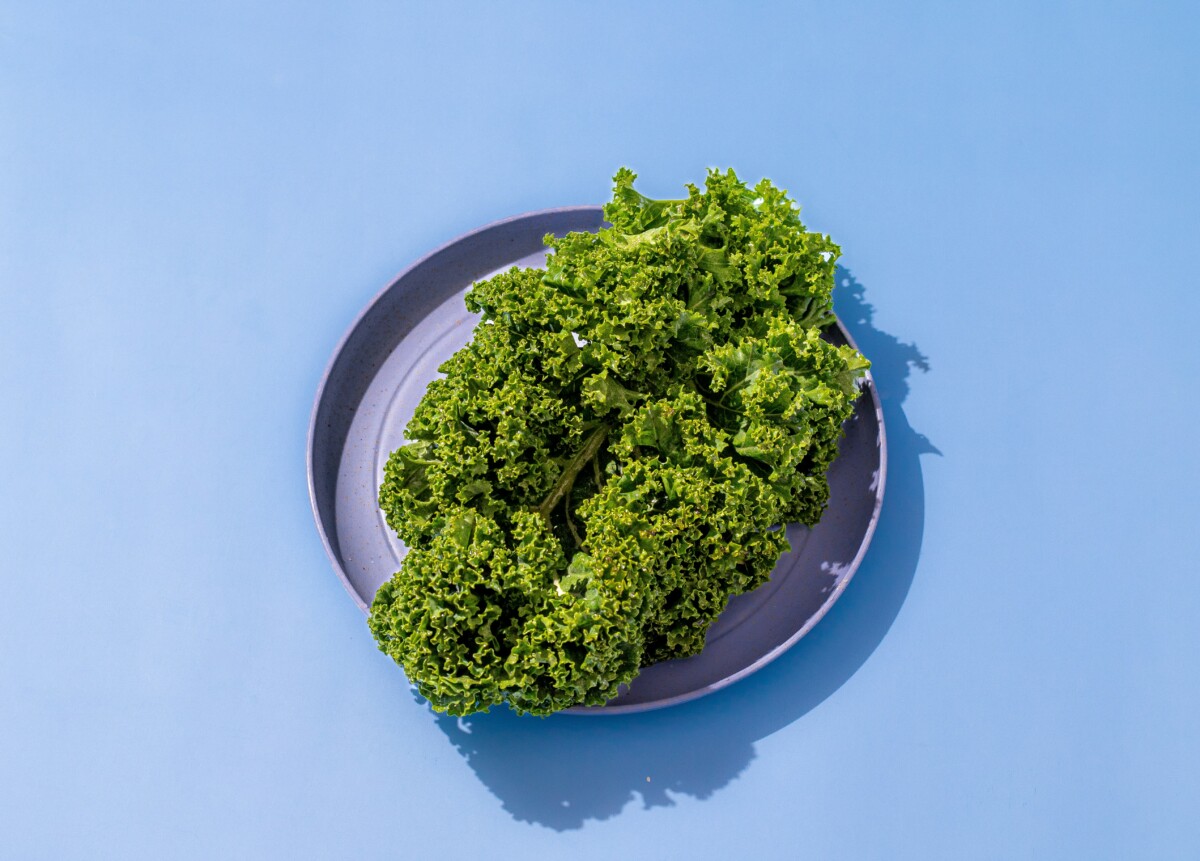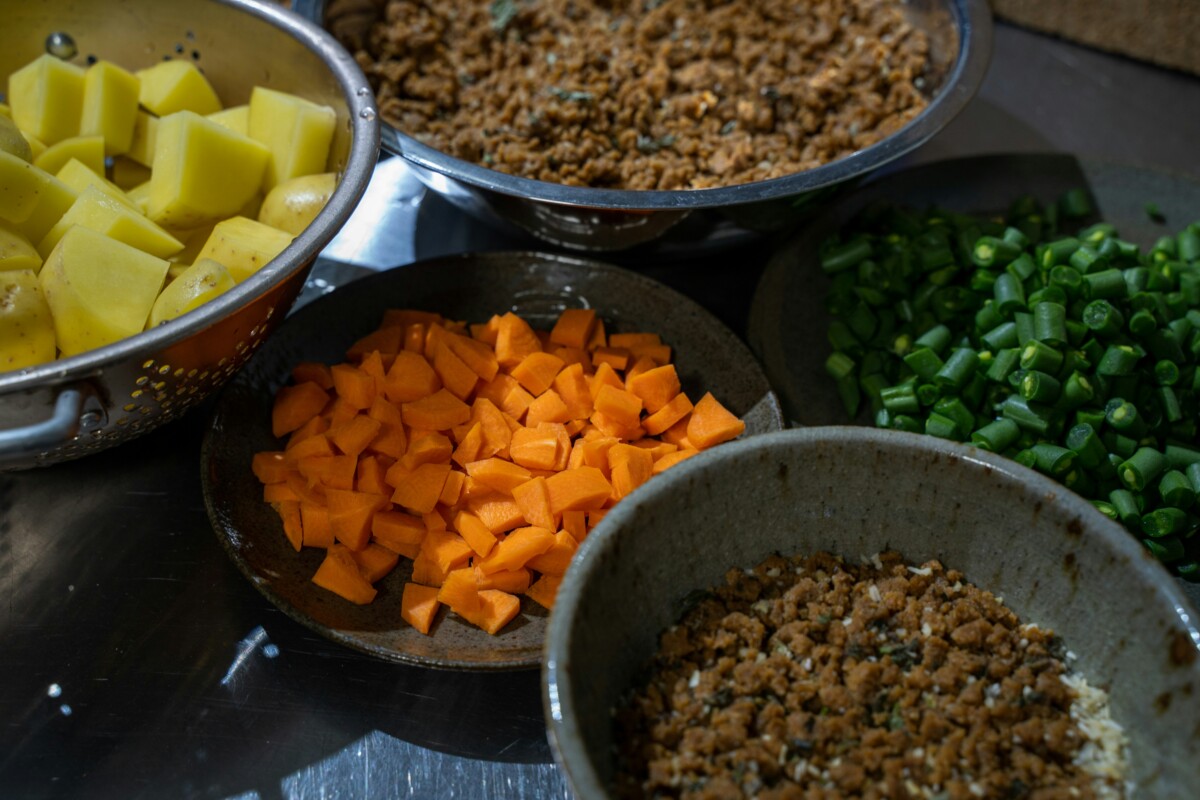Listen to the full podcast episode on YouTube, Spotify, and Apple Podcasts.
🧠 From the pitch to the plate
Growing up in a football academy wasn’t just about chasing dreams of sport—it was training in discipline, self-awareness, and what Gina calls “foundational resilience.” That same mindset later fuelled her curiosity around nutrition during injury recovery, eventually setting her on a path from performance nutritionist to ESG leadership.
But what really sets Gina apart is her clarity on a core challenge in sustainable food: knowing what to do doesn’t mean we actually do it.
“There’s a huge gap between intention and behaviour. People say they care—but the label on the sandwich rarely drives their choice.”
Cue the research.

🧪 The carbon-labelling study that stopped us in our tracks
Gina joined us to dissect a study in Science Direct that examined whether carbon labels on sandwiches influenced consumer choices. The results were sobering:
-
69% of people said they valued carbon labels
-
Only 27% said it influenced their purchase
The implication? We’re walking into shops with good intentions, but walking out with a BLT.
Why? The study points to a lack of understanding of carbon labels, information overload, and competing priorities like cost and convenience.
“It’s like giving people a nutrition label in a language they don’t speak—and then expecting them to change their habits.”
This “action gap” isn’t new, but Gina believes it’s fixable—with the right internal tools and a behavioural nudge or two.
♻️ From sticker to system: How Aramark re-engineered food labelling
Here’s where the Rory Sutherland part kicks in.
What if carbon labelling isn’t just a sticker for the consumer, but a lever for chefs?
At Aramark, carbon data is now embedded into recipe systems, allowing teams to analyse high-impact meals and reformulate them at the source—quietly shifting sustainability without asking customers to make heroic choices.
This means:
-
A chef uploads a new dish, and the carbon score auto-generates
-
Recipes can be tweaked behind the scenes to lower carbon impacts
-
Communication is handed over to other chefs, not a corporate team
“Chefs want to hear from chefs. They don’t want someone from corporate coming in telling them to cut beef.”
It’s a brilliantly behavioural move. Aramark doesn’t wait for customers to get fluent in carbon labelling—they engineer better choices upstream and make the sustainable option the easy one.
🧑🏫 Playing games, sparking conversations
That doesn’t mean the customer gets ignored. Gina and her team have launched a range of engagement tools, including…
🎮 Play Your Carbon Right – A sandwich-themed take on Play Your Cards Right, where users guess whether a meal is higher or lower in carbon than the last
📱 QR codes at points of sale – Linking to full carbon impact explanations
🥇 “A-Rated Dish of the Day” – Turning carbon labels into something people can aspire to, not just tolerate
“It’s about sparking curiosity, not guilting people into change.”

🪴 The big opportunity? Feeding 250,000 people… better
With Aramark serving over a quarter of a million meals daily in the UK alone, the stakes are high. Around 70% of their carbon footprint comes from food purchasing, especially animal-based ingredients.
That’s why Gina’s work is focused not just on reformulating dishes, but on sourcing regenerative produce, rethinking waste, and supporting smaller, sustainable suppliers across the value chain.
“We’re not perfect. No one is. But the scale of the opportunity in food is massive.”
Her ultimate goal? To embed ESG in every commercial decision by default—so it’s no longer a bolt-on, but a reflex.
✨ Final thought: ESG shouldn’t be exceptional
In her “magic wand” moment, Gina didn’t ask for a shiny new label or global policy breakthrough. She asked for something much simpler:
“I’d want ESG to be factored into every decision—automatically. Not an afterthought. Just part of how things are done.”
In a world of short-term targets and endless KPIs, it’s a radical idea cloaked in pragmatism.
And maybe, just maybe, that’s how change really happens: not with slogans, but with sandwiches.
Sponsored by...
truMRK: Sustainability Communications You Can Trust
👉 Learn how truMRK helps organisations strengthen the credibility of their communications.
Want to be a guest on our show?
Contact Us.
The Responsible Edge Podcast
Queensgate House
48 Queen Street
Exeter
Devon
EX4 3SR
Recognition.
Join 2,500+ professionals.
Exploring how to build trust, lead responsibly, and grow with integrity. Get the latest episodes and exclusive insights direct to your inbox.
© 2026. The Responsible Edge Podcast. All rights reserved.
The Responsible Edge Podcast® is a registered trademark.
Sponsored by truMRK
© 2026. The Responsible Edge Podcast

